If you’re looking to bring people together and showcase your love for grilling, hosting a BBQ competition in your community is a fantastic idea. Not only will it allow you to indulge in mouth-watering barbecue dishes, but it will also create a sense of camaraderie among your neighbors and friends. In this article, we will guide you through the essential steps of hosting a successful BBQ competition, from finding the perfect location to organizing judges and ensuring a memorable experience for all participants. So grab your apron and get ready to fire up those grills, because we’re about to take your community BBQ game to the next level!
Choosing the Date and Location
Selecting an appropriate date
When choosing the date for your BBQ competition, you want to consider several factors to ensure its success. First, you’ll need to research the local event calendar to avoid any conflicts with other major events or holidays that may draw potential participants away. Additionally, think about the weather conditions during different times of the year to ensure a pleasant outdoor experience for both participants and attendees. Ideally, you’ll want to choose a date with moderate temperatures and minimal chances of rain.
Finding a suitable venue
Next, finding a suitable venue is crucial for hosting a successful BBQ competition. Look for open outdoor spaces such as parks, fairgrounds, or community centers that can accommodate the necessary infrastructure, including cooking areas, seating arrangements, and parking facilities. Ensure that the venue has sufficient space to accommodate the anticipated number of participants and attendees comfortably. Additionally, consider the accessibility of the venue, including transportation options and parking availability, to ensure convenience for everyone involved.
Obtaining necessary permits and permissions
Before finalizing the venue, it’s important to research and obtain any required permits and permissions. Contact your local city or town hall to inquire about the necessary licenses and permits for hosting a public event. These may include health department approvals, fire safety permits, and noise permits, depending on your location. It’s crucial to start this process well in advance, as permits may take time to process. Be sure to comply with all regulations and guidelines to ensure a safe and successful event.
Recruiting Volunteers
Identifying necessary roles
Volunteers play a vital role in the success of any BBQ competition. Begin by identifying the various roles required to run the event smoothly. These roles may include event coordinators, judges, registration and check-in staff, crowd management, and food service. Analyze the tasks involved in each role and estimate the number of volunteers needed for each position. Ensure that the roles are well-defined and clearly communicated to potential volunteers.
Advertising volunteer opportunities
To recruit volunteers, you can advertise the opportunities in your community through various channels. Utilize social media platforms, local community boards, and online volunteer databases to spread the word. Craft engaging and informative advertisements that highlight the benefits of volunteering, such as networking opportunities, community involvement, and the chance to contribute to a fun and exciting event. Encourage interested individuals to reach out and provide details about their availability and any relevant experience they may have.
Conducting volunteer training
Once you have recruited volunteers, it’s essential to provide them with proper training to ensure they understand their roles and responsibilities. Schedule training sessions where you can explain event logistics, safety procedures, and any specific tasks or best practices they need to know. Also, encourage open communication and create a supportive environment where volunteers can ask questions and seek clarification. Training sessions will help ensure a well-coordinated and efficient team on the day of the BBQ competition.
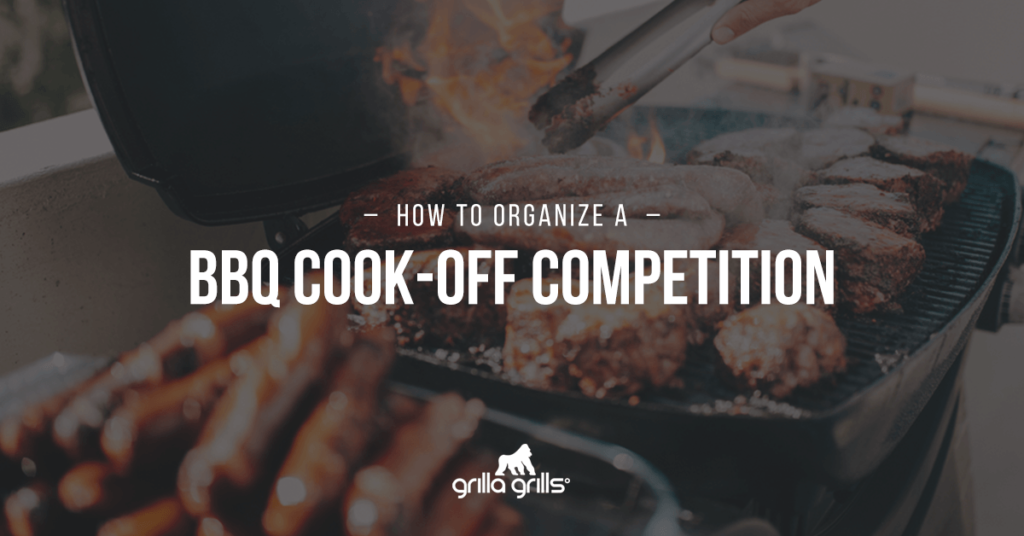
This image is property of cms.grillagrills.com.
Determining Competition Categories
Deciding on meat categories
Choosing the meat categories for your BBQ competition is a significant decision that can attract participants with different grilling specialties. Common meat categories include ribs, chicken, pulled pork, and brisket. Consider the popularity and appeal of each category among participants and attendees in your community. To add excitement, you might also consider unique categories such as sausage, seafood, or vegetarian options. However, be mindful of the resources required for each category and ensure they align with the expectations and preferences of your target audience.
Considering additional categories
In addition to the main meat categories, you can also consider additional categories to diversify the competition. These categories can focus on specific grilling techniques, such as smoked or grilled vegetables, or even specialty dishes like BBQ sauce, baked beans, or desserts. Including these additional categories can attract a broader range of participants and create a more vibrant and diverse atmosphere during the event. Ensure that the additional categories align with your community’s preferences and interests.
Determining judging criteria
To ensure fairness and consistency in judging, it’s crucial to establish clear and objective criteria for evaluating the BBQ entries. Consider factors such as taste, tenderness, appearance, and creativity. Create a scoring system that allows judges to rate each category on specific attributes. You can also consider conducting blind tastings to eliminate any potential biases. Make sure to communicate the judging criteria to participants in advance to guide their preparations and ensure a level playing field for all competing teams.
Developing Rules and Guidelines
Setting entry requirements
Establishing clear entry requirements is essential to ensure that participating teams understand the expectations and eligibility criteria. Determine factors such as team size, minimum age requirements, and entry fees. Additionally, outline any limitations or restrictions on equipment, ingredients, or cooking techniques. Communicate these entry requirements clearly in your event promotions and registration process to avoid any misunderstandings. Setting entry requirements will help maintain the integrity of the competition and ensure a level playing field for all participants.
Establishing cooking and safety guidelines
To ensure a safe and organized event, it’s crucial to establish cooking and safety guidelines for all participants. Specify rules regarding fire safety, food handling standards, and proper sanitation practices. Outline guidelines for equipment usage, including propane tanks, smokers, and grills. Make sure participants understand the importance of maintaining a clean and hazard-free cooking area. Moreover, consider providing guidelines for food allergies and dietary restrictions to cater to diverse audience needs.
Creating a code of conduct for participants
Promoting a positive and respectful environment is key to a successful BBQ competition. Develop a code of conduct that outlines expected behaviors, such as sportsmanship, respect for fellow participants and volunteers, and adherence to event policies. Emphasize the importance of maintaining a friendly and inclusive atmosphere throughout the competition. Communicate the code of conduct to all participants during the registration process and display it prominently at the event venue.
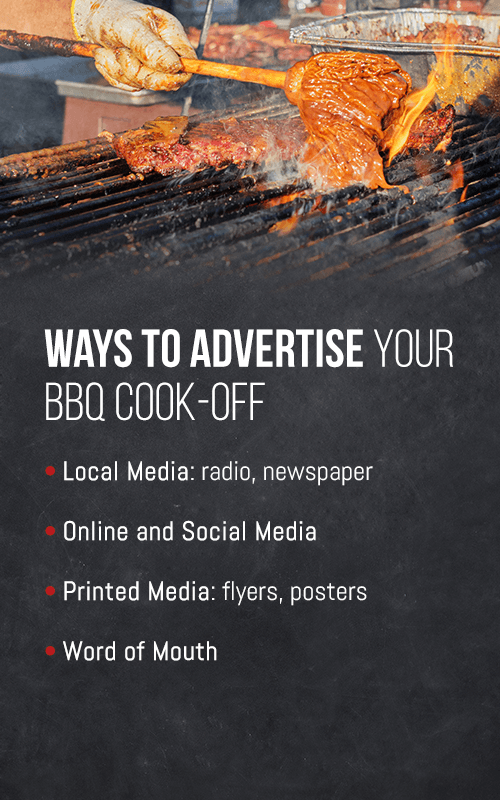
This image is property of cms.grillagrills.com.
Securing Sponsorships and Funding
Identifying potential sponsors
Securing sponsorships is crucial to cover event expenses and enhance the overall experience for participants and attendees. Identify potential sponsors in your community who have an interest in food, cooking, or supporting local events. Reach out to local businesses, restaurants, grocery stores, and even barbecue-related companies. Research their sponsorship history and see if they have supported similar events in the past. Look for sponsors who align with the values and goals of your BBQ competition.
Crafting sponsorship proposals
Once you have identified potential sponsors, it’s important to create compelling sponsorship proposals that clearly outline the benefits of partnering with your BBQ competition. Highlight the opportunities for brand exposure, community engagement, and potential customer interactions during the event. Customize proposals for different types of sponsors, emphasizing how their involvement will positively impact the competition and benefit their business. Consider offering various sponsorship levels to accommodate different budgets and resources.
Exploring other funding sources
In addition to sponsorships, consider exploring other funding sources to ensure the financial success of your BBQ competition. Research potential grants, crowdfunding platforms, or fundraising events that can help cover expenses. Reach out to local community organizations, government agencies, or foundations that support community initiatives. Host pre-event fundraisers such as bake sales, auctions, or BBQ recipe contests to engage and involve your community while raising funds. Diversifying your funding sources will mitigate risks and provide financial stability for your competition.
Promoting the Event
Creating a marketing plan
A comprehensive marketing plan is essential to create buzz and attract participants and attendees to your BBQ competition. Identify your target audience and craft marketing messages that resonate with them. Utilize various channels such as social media, local newspapers, radio stations, and community newsletters to spread the word. Create engaging content, including photos, videos, and testimonials from previous participants, to showcase the excitement and experience they can expect. Consider partnering with local influencers, food bloggers, or barbecue enthusiasts to further expand your reach.
Designing promotional materials
Eye-catching promotional materials play a significant role in capturing people’s attention and enticing them to participate or attend your BBQ competition. Design posters, flyers, banners, and brochures that effectively communicate essential information, including the date, location, registration details, and feature highlights. Utilize vibrant colors, mouth-watering food images, and appealing graphics that convey the spirit of BBQ culture and create a sense of anticipation. Make sure to include your event’s logo and contact information for easy reference.
Utilizing social media platforms
Social media platforms are powerful tools for promoting your BBQ competition and engaging with your target audience. Create dedicated social media accounts for the event on platforms such as Facebook, Instagram, and Twitter. Regularly post updates, photos, and videos that showcase the participants, cooking process, and behind-the-scenes preparations. Encourage participants, volunteers, and attendees to share their experiences using event-specific hashtags. Engage with your followers by responding to comments, organizing contests, and offering exclusive discounts or early bird registration incentives.
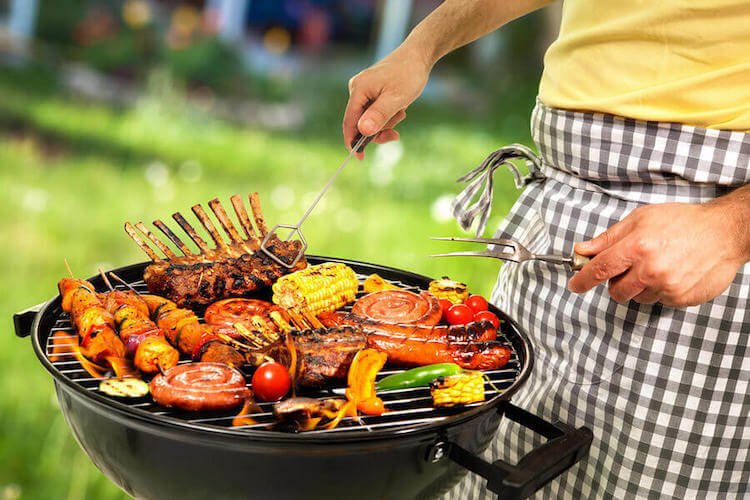
This image is property of www.fundraiserinsight.org.
Managing Participant Registration
Setting up an online registration system
Streamline the participant registration process by setting up an online registration system. Use a dedicated event management platform or a customized website form that collects all necessary information such as team name, contact details, and desired categories of participation. Ensure that the registration system is user-friendly, secure, and capable of handling a large number of registrations. Consider offering early bird discounts or package deals to incentivize early registrations and maximize participant engagement.
Collecting registration fees
Collecting registration fees is a crucial aspect of managing participant registration. Determine a fair fee structure based on factors such as the number of categories participants enter, early or late registrations, or any additional perks offered. Set up a secure online payment system that accepts credit cards, PayPal, or other convenient methods. Include detailed information about the registration fees and payment options in your event promotions to avoid any confusion. Promptly acknowledge payments and send confirmation emails to participants to ensure they feel confident in their registration.
Communicating with registered participants
Maintain consistent communication with registered participants to keep them informed and engaged throughout the preparation process. Send regular emails or newsletters with event updates, important dates, and reminders of any required submissions or paperwork. Provide participants with resources, such as recipes, cooking tips, or BBQ competition guidelines, to help them prepare effectively. Encourage open communication and promptly respond to any inquiries or concerns participants may have, ensuring a positive and supportive experience in the lead-up to the competition.
Organizing Event Logistics
Arranging for necessary equipment
To facilitate a smooth and successful BBQ competition, it’s essential to arrange for all necessary equipment in advance. Take stock of the equipment needed, including smokers, grills, tents, tables, chairs, and serving stations. Ensure that you have sufficient quantities to accommodate the expected number of participants and attendees. Consider renting equipment if necessary, and make arrangements for delivery, setup, and pickup. Test all equipment beforehand to identify and address any potential issues or repairs.
Coordinating event layout
Efficient event layout is crucial for creating a seamless experience for participants and attendees. Designate specific areas for participant check-in, cooking stations, judging tents, seating areas, and entertainment spaces. Consider the flow of foot traffic to avoid congestion. Clearly mark areas with appropriate signage or banners to guide participants and attendees smoothly. Coordinate with vendors or food trucks to ensure their setup aligns with the overall event layout. A well-organized event layout will enhance the overall experience of both participants and attendees.
Ensuring sufficient utilities and amenities
To meet the needs of participants and attendees, ensure that sufficient utilities and amenities are available at the event venue. Consider access to electricity for cooking equipment, access to potable water for cooking and cleaning purposes, and restroom facilities for attendees. Include additional amenities such as handwashing stations, garbage bins, and recycling facilities to promote cleanliness and sustainability. Ensure that all utilities are functioning properly and have contingency plans in place in case of any unexpected issues.
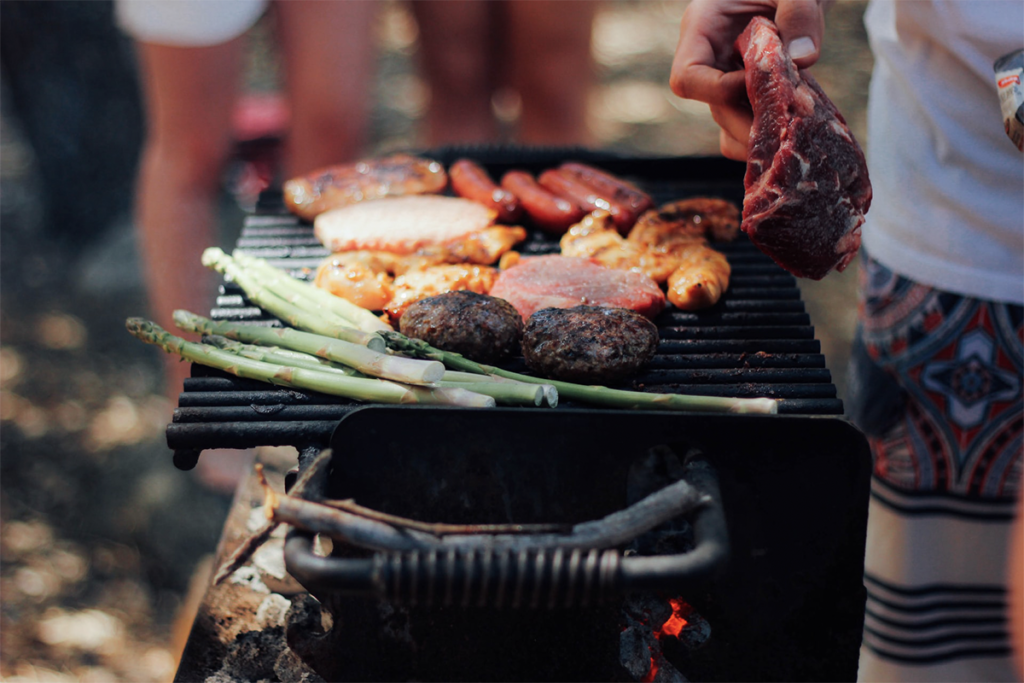
This image is property of cloudfront-us-east-1.images.arcpublishing.com.
Building Judging Panel
Identifying potential judges
A knowledgeable and credible judging panel is essential to ensure a fair and well-respected BBQ competition. Look for individuals with expertise and experience in barbecue, culinary arts, or food-related industries. Consider local chefs, restaurant owners, food bloggers, or even previous BBQ competition winners. Aim for a diverse panel consisting of a variety of backgrounds and perspectives to ensure unbiased judging. Reach out to potential judges with a clear explanation of their responsibilities and the benefits of being a part of the event.
Establishing judging criteria
Establishing clear and comprehensive judging criteria is crucial to maintain fairness and consistency throughout the competition. Collaborate with your judging panel to define scoring systems and criteria for each competition category. Create a rubric that outlines specific attributes to evaluate, such as taste, tenderness, smoke flavor, and presentation. Provide judges with sufficient training and guidelines to ensure they understand and follow the designated criteria. Encourage judges to provide constructive feedback to participants to help them improve their skills.
Inviting and confirming judges
Once you have identified potential judges and established the judging criteria, it’s time to officially invite and confirm their participation. Reach out to each judge individually, explaining their role and the expected commitment. Provide a detailed schedule of the competition day, including check-in times, rules meetings, and judging periods. Request a confirmation of their availability and provide them with any necessary information or resources they may need to prepare for their judging responsibilities.
Executing the Competition
Preparing participant check-in process
Smooth participant check-in is crucial to ensure a well-organized start to the BBQ competition. Set up a designated check-in area where participants can register, pick up their event badges, and receive any necessary materials or instructions. Use your online registration system to streamline the check-in process by having pre-printed documents ready for participants to review and sign. Assign dedicated staff or volunteers to manage the check-in area and provide clear signage or directions to guide participants.
Conducting cooking and judging schedule
Efficiently managing the cooking and judging schedule is essential for the smooth execution of the BBQ competition. Ensure that each competition category has a designated cooking and turn-in time slot. Clearly communicate these times to participants and enforce strict adherence to the schedule to maintain fairness. Coordinate with the judging panel to establish a smooth transition between each category. Allocate sufficient time for judges to evaluate and score entries accurately, allowing for necessary discussions or tie-breakers if required.
Managing event flow and timeline
Throughout the BBQ competition, it’s important to manage the event flow and timeline to provide an engaging experience for attendees. Clearly define the order of events, such as cooking demos, live entertainment, or beer tastings, and create a detailed schedule. Utilize emcees or announcers to guide attendees and participants through each activity and provide updates on the progress of the competition. Monitor the event flow and make any necessary adjustments to avoid delays or overcrowding. Ensure that participants, volunteers, and attendees are well-informed about any changes or updates to the schedule.
Hosting a BBQ competition in your community can be an exciting and rewarding endeavor. By carefully considering the date and location, recruiting volunteers, determining competition categories, developing rules and guidelines, securing sponsorships and funding, promoting the event, managing participant registration, organizing event logistics, building a judging panel, and executing the competition, you can create an unforgettable experience for participants and attendees alike. These comprehensive steps will guide you through the entire process, helping you establish a successful BBQ competition that brings your community together and celebrates the art of barbecue.
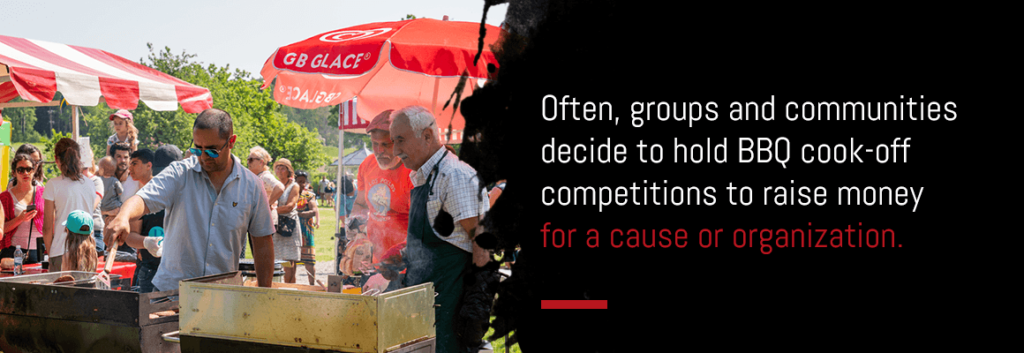
This image is property of cms.grillagrills.com.
